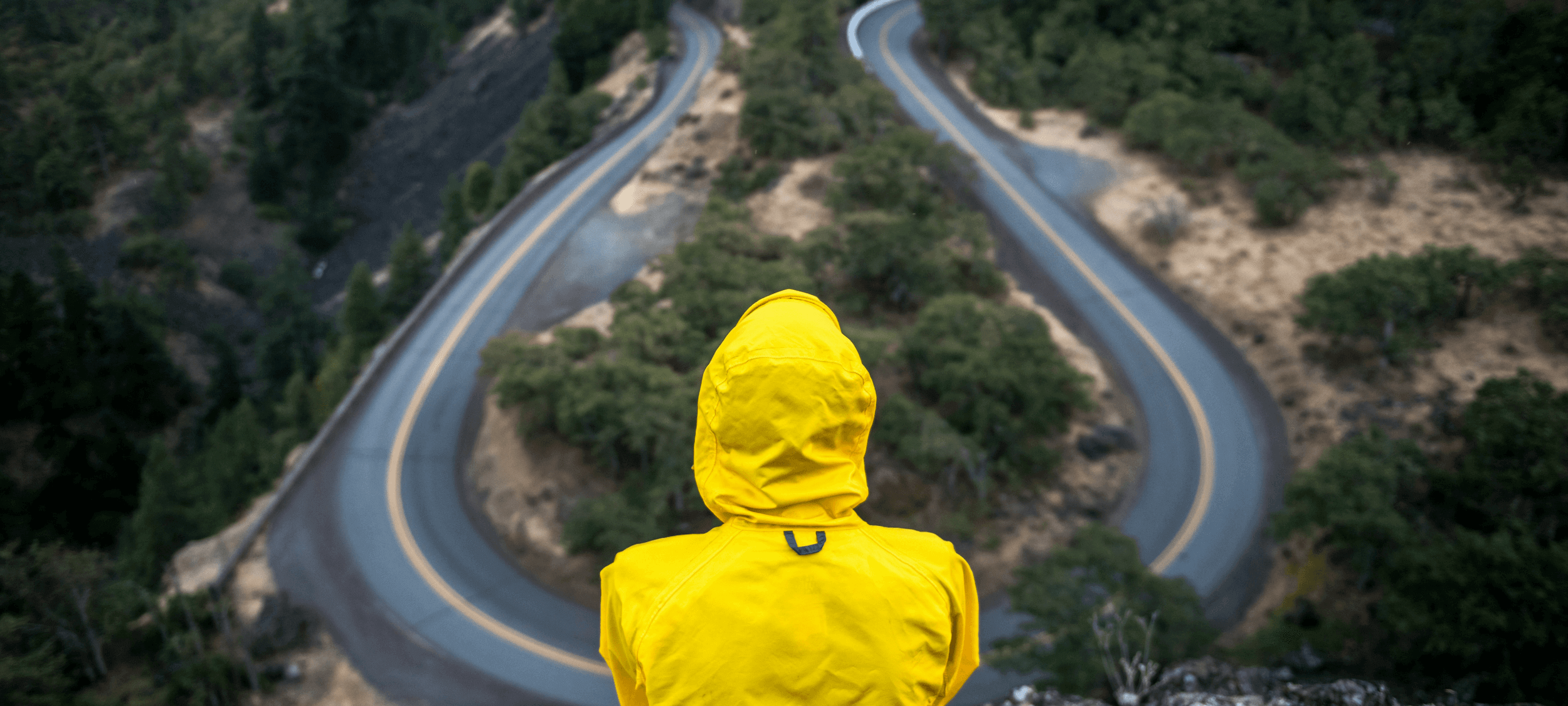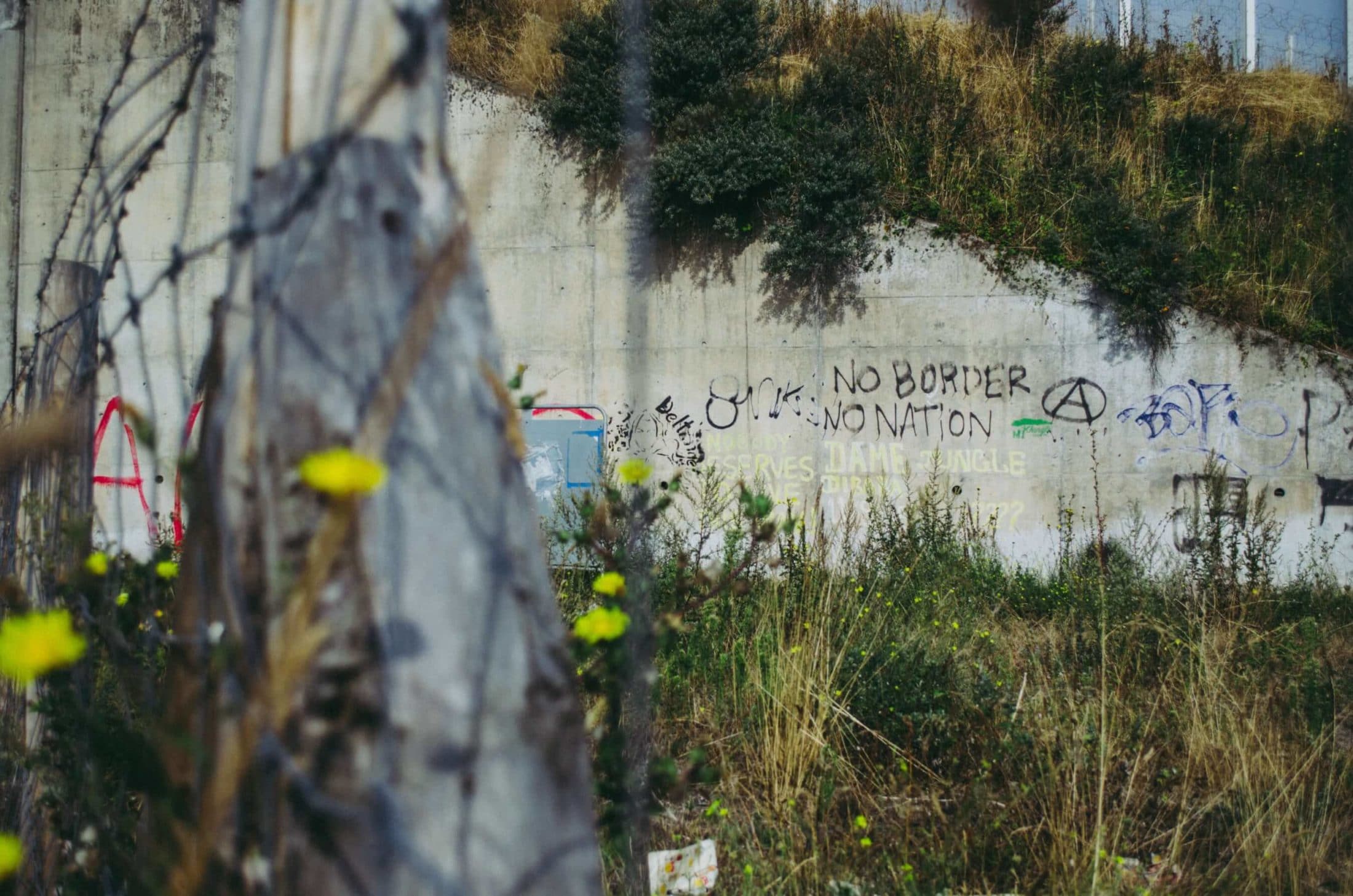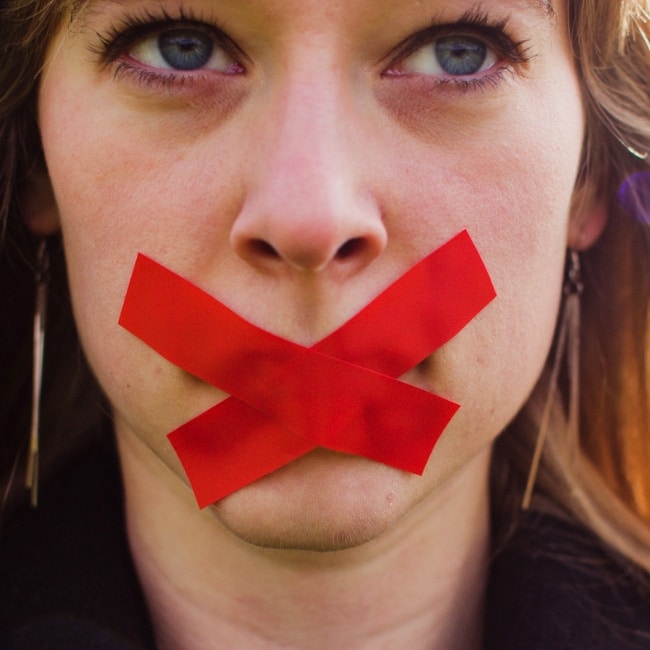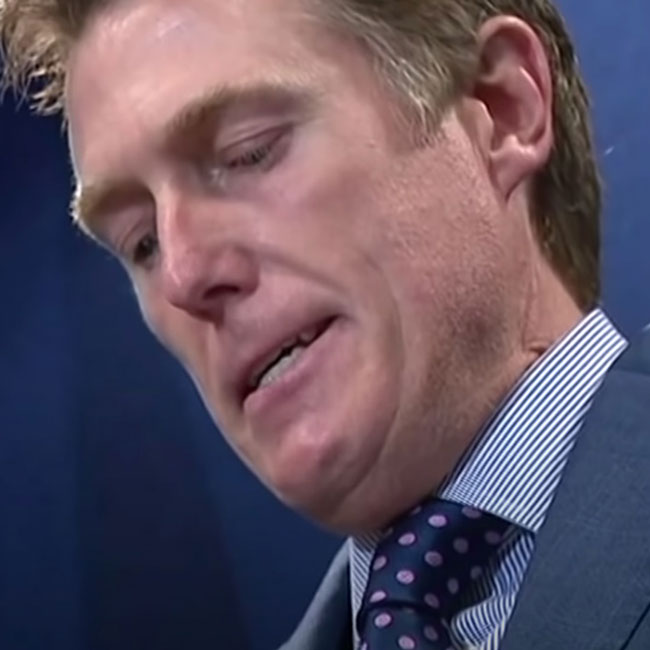Interrogating our vaccine fetish

Interrogating our vaccine fetish
Opinion + AnalysisHealth + Wellbeing
BY Bryan Mukandi The Ethics Centre 27 SEP 2021
A couple of months ago, a friend died as a result of COVID-19 infection.
In a more just world, more people would know about Dr Surprise Matekere, or Shami, as I knew her long ago, when we were fellow medical students and then junior doctors at the United Bulawayo Hospitals.
In a more just world, the poor, rural communities she served would not have been so poor, or so in need of her generosity, nor the generosity of others like her. In a more just world, standards of living in Matabeleland and across the so-called ‘developing world’ would be much higher; COVID vaccines and other health supplies would be more widely available; and a remarkable woman, an incredibly dedicated health care provider, and a lovely human being would probably still be alive today. Sadly, it seems as though the world of our making is governed more by the maxim Ngũgĩ wa Thiong’o laments in Petals of Blood – ‘you eat or you are eaten’ – than it is by any coherent conception of justice. Moreover, our primary imperative, our outworking of conatus or the will to persevere, is a striving to be on the winning side of the ruthless, governing calculus. We are driven, it seems to me, by the impulse to consume others. It’s on this, our cannibalism, that I would like to dwell.
We are driven, it seems to me, by the impulse to consume others.
In his argument for conditional requirements rather than compulsion to be vaccinated, Simon Longstaff makes helpful allusion to ‘our nation’s response to the threat posed by terrorism’. He correctly points to the present negative consequences of the post 9-11 deployment of incorrect language and concepts in the justification of terrible policy. Instructive as that is, I think Operation Sovereign Borders is even more illuminating. Consider all the death and suffering that we, in Australia, were collectively willing to countenance to ensure that the risk of being eaten remained beyond our shores, externalized.
How many times did we hear the invocation of the formula, “We don’t want to see people dying at sea on their way here,” with absolutely no care taken nor provisions in mind for them, dying over there? Granted, many of us opposed the policy, but Charles Mills’ explication of The Racial Contract should give even those of us who protest/ed pause. At the heart of the racial contract, he claims, is ‘an epistemology of ignorance’. Hence, signatories acquire both: a share in domination; as well as the power to fail to understand their part in that same domination. That ability to fail to see those one consumes, to imagine oneself morally upright with clean hands, demands the expenditure of a great deal of power, Nietzsche tells us. In practical terms, this means that we can critique and protest cruelty enacted on our behalf, all the while enjoying its benefits.
In practical terms, this means that we can critique and protest cruelty enacted on our behalf, all the while enjoying its benefits.
It’s interesting how the ‘Sovereign Borders’ logic has been deployed internally. The obvious parallels are between national and state boundaries. Today in Queensland, what will be in New South Wales will be – people will be locked down, vaccinated, or not; numbers will go up and down; elected officials will stay or go – so long as we are not locked down, and continue to receive all our goods and services. So much so, I’m not sure how meaningful the distinction really is between the person in Delhi and the person in Sydney. Having been convinced that our wellbeing is tied to the exclusion of the former, it was a small hop, skip and a jump to accepting the same argument regarding the latter. The pedantic reader will ask about the ethnicity and socio-economic qualities of these two individuals. Might the drive to keep consuming in peace trump longstanding prejudices? It might, and once this logic holds across state lines, why not across local government authorities, neighbourhoods, class or occupational lines?
Those in our society most given to eating and most practiced in not being eaten seem to be responding to the pandemic and all it portends in two main ways, dividing themselves into two broad groups.
Those in our society most given to eating and most practiced in not being eaten seem to be responding to the pandemic and all it portends in two main ways, dividing themselves into two broad groups. I would refer to the first group as petulant children, were they not so dangerous. Yet beneath the surface of anti-vaccine, anti-lockdown protest is the reality that there are among us those habituated to privilege – to being served, to tax breaks, cheap credit, relatively high wages, to the inheritance, accumulation and bequeathal of wealth, and to social and political institutions that seem to work to their benefit. So much so, these recipients of enough of a share of a machine – that extracts unsustainably and inequitably – have lost either the ability or the will to countenance risk, precarity, or even their own mortality.
The second group is as invested in the status quo, but instead of closing both eyes to the present state of things, gingerly advances with one eye open and an outstretched hand feeling out the future. “70% … 80% … single dose…double dose … when we get to 70% double dose vaccination…” These are their religious mantras, rather than, “Universal basic income … community development schemes … decentralisation … grassroots public engagement…” It’s fascinating to watch the government, which collectively belongs in this camp, wheel and deal to secure more vaccine doses. Names of pharmaceutical corporations have been made part of the national lexicon. Officialdom has decided that the COVID-19 plan is to keep calm and vaccinate. And while I think mass vaccination is eminently sensible and should be pursued rigorously, I wonder about how those charged with governing will address the small proportion of people who cannot get vaccinated due to medical contraindications; and the larger number who choose not to get vaccinated. It is an unjust society that is indifferent to the former, sacrificing them to the satisfaction of the appetites of the many, regardless of how small their number; and it is a cruel society that is willing to disregard the latter, no matter how petulant.
It is an unjust society that is indifferent to the former, sacrificing them to the satisfaction of the appetites of the many, regardless of how small their number; and it is a cruel society that is willing to disregard the latter, no matter how petulant.
Interestingly, I think these two groups are two parties, taking different paths towards the same goal: the satisfaction of the impulse to continue to eat rather than be eaten. One group demands the right to go on exactly as before, while the other wants to take some precautions, and then go on as before. For both parties, the vaccine is a fetish, understood in the sense laid out by J. Lorand Malory in The Fetish Revisited. He defines a fetish as “a material thing animated by the contrary models of society and the contrary personal expectations of the people who […] have rival relationships with that material thing”. A vaccine is a material object; it is a biologically active substance administered by needle and syringe. COVID-19 vaccines have been brought to life in ways that the measles, mumps and rubella (MMR) vaccine has not. This is because MMR vaccine does not raise existential questions regarding the possibilities of our ability to persist as before.
The COVID vaccination debate concentrates and reduces a complex, crucial conversation to the level of the inane.
The COVID vaccination debate concentrates and reduces a complex, crucial conversation to the level of the inane. It exempts us from consulting geographers, urban planners, architects, civil engineers, political economists, environmental scientists, sociologists and others on the urgent societal reconfiguration necessary. We can instead just reel off biostatistics, discover libertarianism, or engage in any number of activities that keep us focused on stop gaps rather than confronting the demands of redress. Fixation on vaccine and on anti-vaccine are different modes of the same evasion of thought.
In The Beast and the Sovereign, Jacques Derrida grapples with that beastliness which is a feature of the enactment of some conceptions of sovereignty. This maps onto, I suspect, the voracious, extractive monster – the demonic, open stomach – that Irene Watson describes in Raw Law. For the most part, this beastly monstrosity is who we are as a political community. Confronted with crisis, we demand the freedom to move about unvaccinated and spread illness where we go; or the freedom to compel or coerce others into taking the medical precautions that will hasten a return to our normal patterns of consumption, including the consumption of the labour of those we are compelling. Naked indifference on one hand, and callous disregard on the other.
In both cases, frighteningly sharp teeth are bare. In neither case is there the attempt to engage in politics, not of the political party variety, but that deliberative, difficult, good faith engagement around what makes for a good society, to which Aristotle gestures in the Nicomachean Ethics. Thus, we ensure that the condemned of the world remain prey, in New South Wales, in Delhi, in Matabeleland, regardless of which of our ruling factions comes out on top.
Ethics in your inbox.
Get the latest inspiration, intelligence, events & more.
By signing up you agree to our privacy policy
You might be interested in…
Opinion + Analysis
Health + Wellbeing, Relationships
Ageing well is the elephant in the room when it comes to aged care
Opinion + Analysis
Health + Wellbeing, Relationships
5 ethical life hacks
Big thinker
Health + Wellbeing, Relationships
Big Thinker: Shulamith Firestone
Opinion + Analysis
Health + Wellbeing, Relationships
Exercising your moral muscle
BY Bryan Mukandi
is an academic philosopher with a medical background. He is currently an ARC DECRA Research Fellow working on Seeing the Black Child (DE210101089).
BY The Ethics Centre
The Ethics Centre is a not-for-profit organisation developing innovative programs, services and experiences, designed to bring ethics to the centre of professional and personal life.
Paralympian pay vs. Olympian pay

Paralympian pay vs. Olympian pay
Opinion + AnalysisRelationships
BY Mehhma Malhi The Ethics Centre 27 SEP 2021
Recently, the Australian Prime Minister, Scott Morrison, announced that Paralympians will be paid the same bonuses as Olympians.
Specifically, medalists that win gold will receive a $20,000 bonus, and those that win a silver or bronze will get $15,000, and $10,000 respectively. Remarkably, prior to this announcement Paralympians received no payment whatsoever for representing their country and for their incredible efforts.
In his speech, Morrison noted that the Paralympic team won a phenomenal 60 medals and described this achievement as having “national significance.” It appears that the exceptional performance of our Paralympians has prompted this change to the funding model. But while this is a welcome development and clearly a step in the right direction, the reasons for this shift in thinking and change in policy warrant further consideration.
Firstly, it seems unfair and perhaps reductive to award the Paralympic team equal compensation only if they perform exceptionally as a collective. The team only garnered support for its campaign because it won a large number of medals that surpassed the collective achievements of our Olympians. One can’t help wondering had they not done so well would the Government have recognised their achievements and made this change?
On the other hand, this cannot be the only reason for the change in position as no such bonuses were considered in 2016 when Paralympians won even more medals – 81 in total. Therefore, perhaps the decision reflects more the thinking of the incumbent government instead of a more pervasive bias?
Either way, it is evident that such stark differences in pay partly occur because of deep-seated discrimination and that in reality individuals in minority groups have to go the extra mile to ‘prove’ their worth. Additionally, whilst our Olympians and Paralympians compete for their country, there is an explicit recognition that their individual efforts are partly compensated by the monetary award. The lack of payment undermines this.
Curiously, the Australian Government sets aside more than $50 million for high-performance grants that support both Olympians and Paralympians. But the fact that this budget is shared makes it even harder to comprehend why it has taken so long to recognise this disparity and attempt to correct it. However, leaving aside for a moment the reasons why this has occurred, let’s consider what makes this form of pay discrimination inequitable from an ethical perspective. Broadly, there are two main reasons.
First, the pay bonus is not an additional sum of money that athletes receive on top of their salary. Instead, it is usually their primary source of income. In other words, it is not a bonus at all, and athletes that don’t receive any such grants or awards must rely heavily on family support or sponsorships following sporting events to sustain themselves. Therefore, in addition to being an ‘award’ that serves the purpose of providing open acknowledgement of achievement, the bonus is in fact a monetary necessity. Therefore, for Australia to preferentially award athletes competing in the Olympics suggests that Paralympians are regarded less favourably and may in some way be considered as less worthy.
If the difference arose purely due to insufficient funds and a limited budget, then the most equitable approach would be to share the bonuses and split them equally between the two groups of athletes. But this has clearly not been the stance adopted to date.
Instead, the bonuses are a clear example of pay discrimination and the marked inequity denies the Paralympians what they rightly deserve. After all, the Paralympians train and work just as hard as Olympians. Furthermore, finding appropriate training facilities and resources for athletes with disabilities is far more challenging and costly than it is for those without any limitations. Places with the necessary specialised equipment and ease of access are scarce. And so, if anything, the budget for the Paralympic committee should be larger not smaller.
Further, Paralympic athletes are subject to pay discrimination as they are denied chances to receive sponsorships. There ought to be additional enhancements put in place to ensure the success of Paralympians. Traditionally, the Paralympics have been broadcast at odd hours and the advertising leading up to them is comparatively modest. This is in part driven by a lack of advertising and compounded by broadcasting schedules and limited Paralympian visibility. This means that sponsors are less likely to partner with Paralympians and the majority never receive lucrative sponsorships that would not only help the promotion of them as a brand but also contribute directly and meaningfully to their finances.
For all these reasons, it is necessary that the government, advertising agencies, and Paralympic and Olympic committees examine these issues and devise means of alleviating the financial stress placed upon athletes. Currently, athletes who want to compete and succeed in their sports have no choice but to accept rewards that are below par. The most important reason however, as to why these issues need to be addressed is that the differential treatment of Paralympians perhaps undermines the core tenet of amateur sport – that competition should fair and open to everyone equally.
Paralympians should not be penalised just because they have a strong desire to represent their country and compete. The creation of the Paralympics was based on the need for equal opportunity – surely this should be reflected in how we recognise those that show courage in participation and excel.
Image credit: Nick Miller, Paralympics, London 2012
Ethics in your inbox.
Get the latest inspiration, intelligence, events & more.
By signing up you agree to our privacy policy
You might be interested in…
Big thinker
Relationships
Big Thinker: René Descartes
Opinion + Analysis
Politics + Human Rights, Relationships
Do Australia’s adoption policies act in the best interests of children?
Opinion + Analysis
Business + Leadership, Health + Wellbeing, Relationships
Ending workplace bullying demands courage
Big thinker
Climate + Environment, Relationships
Big Thinker: Ralph Waldo Emerson
BY Mehhma Malhi
Mehhma recently graduated from NYU having majored in Philosophy and minoring in Politics, Bioethics, and Art. She is now continuing her study at Columbia University and pursuing a Masters of Science in Bioethics. She is interested in refocusing the news to discuss why and how people form their personal opinions.
BY The Ethics Centre
The Ethics Centre is a not-for-profit organisation developing innovative programs, services and experiences, designed to bring ethics to the centre of professional and personal life.
Dame Julia Cleverdon on social responsibility

Dame Julia Cleverdon on social responsibility
Opinion + AnalysisBusiness + Leadership
BY The Ethics Centre 27 SEP 2021
Dame Julia Cleverdon DCVO CBE is a passionate and practical campaigner who has gained an international reputation for ‘connecting the unconnected’. Cleverdon sat down with The Ethics Centre’s Simon Longstaff to chat about the future of business sustainability and social responsibility.
Dame Julia Cleverdon remembers working in the business world in the UK in the early 1980s. Margaret Thatcher had been in power for a few years and had made clear her position to not intervene to save shipyards or coal mines. To Cleverdon, it felt like “the whole country was in flames”. In 1981, there was a series of flash riots across Britain largely triggered by high levels of youth unemployment, particularly in some of the poorest areas in Britain: Nottingham, Liverpool and parts of London.
At the time, Dame Julia was working for a leadership organisation called the Industrial Society, and was tasked with answering the question: what can businesses do to make a difference in communities? “We discovered that you were five times more likely to be unemployed if you were a black teenager than if you were a white,” she says.
“Although the riots weren’t race riots, they were young people in mass affected by what was going on in society. And the business world with whom I had been working quite closely at the Industrial Society were absolutely amazed and said ‘where’s this come from? The Molotov cocktails bouncing our boardroom tables is very bad for business. Where’s this come from? And what should we do about it?’”
Answering these questions became Dame Julia’s defining agenda for the 1980s.
“Being responsible was going to be a better long-term business than being irresponsible.”
Dame Julia Cleverdon has been in business for over four decades and says a lot has changed. “Some businesses that I’ve known for 40 years have not wavered from believing that there is only a commercial case,” she says, “while other businesses have had something in their DNA which means that they are more likely to care about the impact they have on society.”
She jokes that she read The Times death column every morning in order to see, “which maddening old culture has popped their clogs and was no longer running their business,” so she could try to persuade their successor to do business differently.
When asked whether business leaders have learnt from the mistakes of 1981, Dame Julia isn’t sure. “I think the UK is very interesting and specific. It has a great challenge because in a way so much of our success in the last 20 years has been built on the financial services and the enormous growth and power of London.
“London’s a global centre for private equity, for technology, but not enough people have come out of that overblown size to understand what was actually going on in the North. And if you look at some surprising decisions that Britain has taken in the last 10 years or so you say ‘what caused you to believe that coming away from Europe and the European relationships that you had since the Second World War, why did you think that was a good idea?’
“And you look at where the voting patterns were – the voting patterns were almost entirely the part of the North. Where Boris Johnson and this government are at the moment is that they won this enormous landslide last year, the 80 seats that had previously been owned by the Labor Party, because their approach on Brexit was what accorded with those in the poorer places of the North.
“They don’t know what life is like up here where fishing boats aren’t working, businesses have shut, our schools are very poor. Nobody seems to care about the quality of education.”
“In the lead up to 1980 business failed to notice this bubbling discontent, which then erupted into riots and cities burning. In the 2000s, they failed to notice the discontent in the North, which then gave rise to Brexit, which was clearly something that the business community did not welcome for the most part. And so on two occasions within the memory of people alive today, there’s been a failure.”
Julia Cleverdon on her ‘teach first’ initiative.
“One of the things that causes me to reflect is that between 2001 and now, 20 years later, I’ve seen the most enormous growth of graduates in Britain who want to come into the front line of public service as teachers, police officers, social workers. I was there at the start of something called Teach First, which was persuading the cleverest university graduates in Britain that they should come and teach in the poorest schools. The mating call of the posh ‘come and work in this unbelievably swanky very well-paid private sector, commercial job’, and I would say to them, ‘no, no, you can go on and do that later but first come and understand what the issues are of educational inequity in Britain’.”
What are the major challenges for the role of business in society?
“The issue is about whether businesses listen to what’s going on in society. When you listen to the people of Blackpool gathered together for two hours on a Zoom call during a global pandemic you think this is absolutely indescribable.
“Take the inequity of access to broadband, digital and tech kit. What COVID lockdown in the UK has shown us is that actually probably 70% of kids in the poorest communities have no access to digital kit at home. You may have one phone between the family and you’re not going to get everybody’s lessons downloaded on that one phone. The cost of being on Pay As You Go to get the lesson downloaded means that you can be spending £160 a week on data getting a family of six kids their lessons.”
AUDIO: Julia Cleverdon on her work within the Blackpool community.
Is Dame Julia Cleverdon optimistic?
“The thing that keeps me optimistic is, I’ve always worked with young people, but I never worked so extensively with young people as I have in the last seven years on a great campaign called the #iwill Campaign. And what has really fired me up is the passion, energy, belief and purpose of under 25-year-olds. I do believe that the business world par excellence has to innovate all the time to be ahead of the game. And the cleverest businesses understand that innovation is best done through diversity and diverse experiences. Therefore how you recruit, how you manage, has got to ensure that you’ve got a diversity of views.”
“The other thing is the passion of the young for the causes that I’ve cared about all my life. So I don’t worry anymore about climate change. You watch Greta [Thunberg], you watch the primary school strikes that we had in Britain and you see corporates realising they’re not gonna be able to survive and thrive if they don’t take that into account. So no, I remain an optimist even though I’m 70.”
AUDIO: What keeps Julia Cleverdon optimistic.
Julia’s advice for emerging business leaders:
- Spend time embedded in different communities to enhance your perspective
- Don’t just learn from books – get out into community
AUDIO: Listen to the full podcast with Dame Julia Cleverdon.
Listed by The Times as one of the 50 most influential women in Britain, Dame Julia Cleverdon DCVO CBE is a passionate and practical campaigner who has gained an international reputation for ‘connecting the unconnected’. She co-founded Step Up To Serve. The #iwill campaign, of which Julia is now a trustee, aims to get 60 percent of young people involved in practical action in the service of others by 2020.
This episode was made possible with the support of the Australian Graduate School of Management, in the School of Business, at the University of New South Wales. Find out more about other conversations in the Leading with Purpose podcast.
Get more articles and podcasts like this by signing up to our Professional Ethics Quarterly newsletter here.
Ethics in your inbox.
Get the latest inspiration, intelligence, events & more.
By signing up you agree to our privacy policy
You might be interested in…
Opinion + Analysis
Business + Leadership, Relationships
Game, set and match: 5 principles for leading and living the game of life
Opinion + Analysis
Health + Wellbeing, Business + Leadership
Service for sale: Why privatising public services doesn’t work
Opinion + Analysis
Business + Leadership
If it’s not illegal, should you stop it?
Opinion + Analysis
Business + Leadership
Sell out, burn out. Decisions that won’t let you sleep at night
BY The Ethics Centre
The Ethics Centre is a not-for-profit organisation developing innovative programs, services and experiences, designed to bring ethics to the centre of professional and personal life.
Georg Kell on climate and misinformation

Georg Kell on climate and misinformation
Opinion + AnalysisBusiness + Leadership
BY The Ethics Centre 27 SEP 2021
Founder and former Executive Director of the United Nations Global Compact, Georg Kell, sat down with The Ethics Centre’s Simon Longstaff to chat about the future of business sustainability for our ‘Leading with purpose’ series.
Georg Kell reflects on his first interactions with the United Nations Global Impact initiative fondly. “It was the late 90s when globalisation was very much on everyone’s lips and the world was embracing openness and the liberal order,” he says.
The idea behind the UN Global Compact originated in a speech by then Secretary-General Kofi Annan to the World Economic Forum in the late 1990s. At the time, the UN was already a well-known force in human rights, labour rights, environmental protection and ethics, good governance and anti-corruption, but these core pillars were seldom applied to large corporations.
The speech was called ‘The Global Compact’ and called on business leaders, in an era of globalisation, to take on more responsibility not just to look for profit but also to build environmental, social, and governance pillars. Popular reaction to the speech led to the official creation of the United Nations Global Compact in 2000, and Georg Kell was named the founding Executive Director.
In his capacity as the Executive Director, Georg Kell was involved in the creation of the Sustainable Development Goals, a blueprint to achieve a better and more sustainable future for all. Kell convened 60 international meetings with the corporate community to flesh out their desired goals and settled on a list of 12, which has now been increased to 17. The goals address the global challenges humanity faces including: climate change, poverty, inequality, environmental degradation, peace and justice.
The 17 sustainable development goals:
- End poverty in all its forms everywhere
- End hunger, achieve food security and improved nutrition
- Ensure healthy lives and promote wellbeing for all ages
- Ensure inclusive and equitable quality education for all
- Achieve gender equality and empower all women and girls
- Ensure availability and sustainable management of water and sanitation for all
- Ensure access to affordable, reliable, sustainable and modern energy for all
- Promote sustained, inclusive and sustainable economic growth
- Build resilient infrastructure
- Reduce inequality within and among countries
- Make cities and human settlements inclusive, safe and resilient
- Ensure sustainable consumption and production patterns
- Take urgent action to combat climate change and its impacts
- Conserve and sustainably use the oceans
- Protect, restore and promote sustainable use of terrestrial ecosystems
- Promote peaceful and inclusive societies for sustainable development
- Strengthen the means of implementation and revitalise the Global Partnership for Sustainable Development.
Kell admits it was a difficult task to convince business leaders representing different countries and backgrounds to sign onto the same goals, but says, regardless of culture and history, most people have similar interests. “No mother wants her daughter to go into forced prostitution. No father wants his son to be shot on a useless battlefield. Humanity has common aspirations. I think it is very important that we uphold those ideas that we stand by and do not give in.”
“For me the Global Compact principles are normative in nature. They are behavioural. They are a minimum floor, on which one should build, one should never go beneath it. It should never violate principles. You should not be corrupt. You should not employ child labour. You should not discriminate. We should not be complicit in human rights abuses.”
AUDIO: Listen to Georg Kell chat about the conception of the Sustainable Development Goals.
Georg Kell is optimistic about the climate.
“The world is moving very fast. And I do believe you’re standing now at the crossroad of a new tone. I take heed for example from the fact that both China and the new US administration and the European Union and Japan, and a number of other countries, now have a long term vision about climate change. Through the common threat posed we now have an opportunity to find a solution. I do believe we can and will discover a lot of commonality and common interest. So, there’s a new chance for a new beginning. I see many positive ripple effects including rediscovering the power of collaboration.“
Georg Kell is less optimistic about the dissemination of information.
“Nothing is assured in terms of rediscovering trust through truthful and honest information. That remains a big ongoing challenge and we all were a bit disappointed with the internet freedom. It didn’t necessarily advance, just the right courses, as we would perceive it, but it also enabled all sorts of conspiracies and niche thinking. But I do believe that events then rectify such mistakes, so to speak, when they come off the path. So it’s an opportunity for a renewal of basic belief systems. We have a chance to reload again. And unfortunately, we have to rediscover and relearn all the time. Unfortunately, that’s probably the destiny of our life. I do believe we have a constant duty to rediscover and relearn. And that will never go away.”
“Every citizen. Every organisation has a fundamental role to play in social development in society, and business with its significant influence and power has an appropriate important responsibility to play.”
Georg Kell hopes businesses take the opportunity to learn before crises occur.
Georg Kell says that in all his experience working in many different corporations he has actually come to appreciate a crisis situation, because he appreciates when a corporation is willing to rethink their position. However, he wishes that willingness also existed in the absence of a crisis. “Often when corporations learn from a crisis they emerge even stronger,” Kell says. “It’s easy to measure the costs of doing things wrong – reputational damage, stock prices go down – but it’s far more difficult to convince people of the benefits of getting a choice.”
According to Kell, businesses should take the time to reflect and question the purpose of what they’re doing and where they’re headed on a regular basis, without waiting for a crisis to occur.
AUDIO: Listen to Georg Kell talk about crisis management.
Georg’s advice for future business leaders:
- Pause, step back, reflect.
- Find a long-term view that you feel inwardly comfortable with.
- Make sure you have all the competencies and then go for it with full dedication.
AUDIO: Listen to the full podcast here.
Georg Kell is the founder and former Executive Director of the United Nations Global Compact. He is also the Chairman of Arabesque Partners, a technology company that uses AI and big data to assess sustainability performance relevant for investment analysis and decision making.
This episode was made possible with the support of the Australian Graduate School of Management, in the School of Business, at the University of New South Wales. Find out more about other conversations in the Leading with Purpose podcast.
Get more articles and podcasts like this by signing up to our Professional Ethics Quarterly newsletter here.
Ethics in your inbox.
Get the latest inspiration, intelligence, events & more.
By signing up you agree to our privacy policy
You might be interested in…
Reports
Business + Leadership
Thought Leadership: Ethics at Work, a 2018 Survey of Employees
Opinion + Analysis
Business + Leadership, Health + Wellbeing
Is your workplace turning into a cult?
Reports
Business + Leadership
Productivity and Ethics
Opinion + Analysis
Business + Leadership, Relationships, Science + Technology
Are we ready for the world to come?
BY The Ethics Centre
The Ethics Centre is a not-for-profit organisation developing innovative programs, services and experiences, designed to bring ethics to the centre of professional and personal life.
360° reviews days are numbered

360° reviews days are numbered
Opinion + AnalysisBusiness + Leadership
BY The Ethics Centre 21 SEP 2021
360 reviews, ‘culture pulses’ and staff surveys are the go-to tools for leadership evaluation and understanding company culture, but ‘shadow values and principles’ stop them from revealing the full picture. Here are three steps to identify and address shadow values to better understand you company’s culture.
Strong culture is integral to the smooth functioning of companies, but most organisations are only getting half the picture, says John Neil, Director of Innovation and member of the Consulting and Leadership team at The Ethics Centre.
360-degree reviews and staff engagement surveys provide a glimpse of company culture, but what they don’t reveal are the deeper, endemic aspects of culture that are ingrained and influential – the ‘shadow values and principles’.
Shadow values and principles are often invisible when culture is seen only through the lens of traditional staff surveys and reviews. However, all companies have their version of them and they need to be brought to light, acknowledged and addressed to truly gauge what’s in play in the culture. In doing so, Neil says “we can significantly improve outcomes both for individuals and for organisations.”
Below are three steps to identifying and addressing shadow values and principles.
1. Identify what shadow values are
“There are really two fundamental aspects to an organisation’s culture,” Neil says. “There are ‘above the line’ elements: the visible, the identifiable, the self-evident. And then there are ‘below the line’ elements, which are less visible, more implicit, and not so easy to identify. The latter are shadow values and principles.”
In other words, they are the unspoken rules, attitudes and behaviours of a company’s culture that aren’t immediately apparent but influence every aspect of the business.
While they can be positive, neutral or negative, “being aware of them is a really key part of better understanding what drives individual employees and the organisation’s culture as a whole,” Neil says.
2. Understand how they operate
Shadow values and principles can operate in numerous ways. One organisation, which commissioned The Ethics Centre to review its culture, had the positive shadow principle of “putting members first”.
“If staff had no clear information or instructions about how to respond to a situation, they would apply this principle and act in the member’s best interest,” Neil says.
“‘Putting members first’ was not codified as one of the organisation’s corporate principles, but it was widely held throughout the organisation. It’s an incredibly powerful and positive shadow principle.”
Another organisation was challenged with becoming more agile but was hampered by the shadow value of ‘harmony.’ Again, while not being formally one of the organisation’s official values, it had a central place in driving behaviours, some of which were positive, but others were detrimental.
“Being harmonious and keeping the peace was something that everyone held to, and while it could be positive, it had negative dimensions as well,” Neil says. “People tended to over-consult, often to keep the peace as there tended to be a culture of avoiding conflict.”
“The decision-making model was a consensus based one and tended to include everyone. As a result, people would defer accountability for making decisions, and therefore decision making was unwieldy and bureaucratic. The shadow value was a major impediment to building a culture in which people expressed their actual views.”
Critically, the organisation’s strategy involved increasing its agility, responsiveness and a focus on innovation – cultural traits that needed to be consciously developed. However, the shadow value of harmony and its negative effect of conflict avoidance meant innovation and agility was more difficult to achieve.
3. Learn how to name and address shadow values
So how can organisations bring their shadow values into the light and begin to remedy the negatives?
“We need to recognise the limitations of the existing approaches to understanding culture, such as staff engagement surveys,” Neil says. “Those methodologies are only as good as the psychological safety in an organisation and the employees’ belief that their contributions to those surveys are going to make a difference.”
This is where a review that focuses on shadow values and principles can identify the unstated operating culture and make recommendations to realign purpose and reaffirm strategic ambitions.
“There also remains a need to recognise the strategic significance of culture,” Neil says. “Culture is integral to the success of a company. It’s the backbone of delivering on an organisation’s strategy.
“There is still, I think, a general lack of recognition of how important culture is in achieving and delivering on strategy. Culture goes much deeper than ‘engagement’.”
Want to find out more about shadow values and principles? Head here.
Ethics in your inbox.
Get the latest inspiration, intelligence, events & more.
By signing up you agree to our privacy policy
You might be interested in…
Opinion + Analysis
Business + Leadership
Leading ethically in a crisis
Opinion + Analysis
Business + Leadership
Economic reform must start with ethics
Opinion + Analysis
Business + Leadership
The pivot: ‘I think I’ve been offered a bribe’
Opinion + Analysis
Health + Wellbeing, Business + Leadership
Teachers, moral injury and a cry for fierce compassion
BY The Ethics Centre
The Ethics Centre is a not-for-profit organisation developing innovative programs, services and experiences, designed to bring ethics to the centre of professional and personal life.
Pavan Sukhdev on markets of the future

Pavan Sukhdev on markets of the future
Opinion + AnalysisBusiness + Leadership
BY The Ethics Centre 20 SEP 2021
Pavan Sukhdev is an environmental economist whose field of studies includes green economy and international finance. Pavan sat down with The Ethics Centre’s Dr Simon Longstaff to chat about the future of business sustainability.
Pavan Sukhdev is considered a true pioneer of sustainability. His business background champions the fusion of finance and economics with sustainability and responsible management. So how did a person interested in banking, finance and economics come to have a particular passion for the sustainability agenda?
Pavan says he owes it all to his upbringing. “I think the cultural upbringing of a child in India, in family, in networks which are community-heavy and community-oriented, never too far from nature – because India is a pretty wild place if you just care to step a few kilometres out from wherever you are – I think these things create a sense of understanding of a world that is not just an urban world, and not just a markets world.”
Pavan’s perspective on markets and value shifted drastically after taking up a job in Singapore with Deutsche Bank, when a conversation with a friend prompted him to realise that what people value – relationships, family, nature – doesn’t trade in markets. And yet our society is so mesmerised by the magic of markets that, if something doesn’t have a price, it doesn’t have value to us. He started doing research on environment economics and wrote a piece for the Economic Times in India, which helped him find a few kindred spirits at Deutsche Bank.
“I came to a point where I thought, someone needs to do something about this economic invisibility of nature.”
It was in this marriage of markets and the invaluable asset of the natural world that Pavan felt he had found his calling. He recounts a story about one evening when he was driving home from work, daydreaming about an idea for a green accounting project for Indian states. He drove past a roadside sign with a quote from Gandhi, which read: Find purpose; the means shall follow.
The message hit him “like an accident”, and Pavan called up some influential friends who, to his delight, were all very willing to help him set up his project. Four friends started working on the side-project and within a few years they had cracked it, he says. “We actually created the world’s first set of complete green accounts for the entire Indian Union of 28 states.”
While there were a number of his colleagues at Deutsche Bank at the time who quietly wondered what he was doing, Pavan is optimistic that in the years since perceptions and attitudes towards valuing the environment have changed, so much so that it has become the mainstream.
AUDIO: Listen to Pavan’s story about realising his environmental vision.
“I believe companies are not merely machines to make money for shareholders, they should have purpose. In fact, they should begin with purpose and then define their path to profitability. And these ideas would have been crazy 10, 15, 20 years ago, but they’re not anymore.”
Pavan on the corporations of the future.
“I see the corporation and its ability as similar to that of a species. A species evolves in response to its environment as the environment changes. The strong who are able to cope with that environment survive and the others die away and that creates evolution. And I see that corporations will move in that kind of direction. So the question is, what are we changing in the environment of the corporation in terms of policies, prices, and institutions that are going to create the new corporation?
AUDIO: Listen to Pavan’s ideas about how corporations need to evolve to survive.
Organisations to watch in the sustainability space:
- Capitals Coalition – a global collaboration redefining value to transform decision making.
- The Social and Human Capital Coalition – a global collaboration that brings together leading organisations to harmonise decision-making processes around social and human capital.
- The Impact Management Project – a forum for building global consensus on measuring, managing and reporting impacts on sustainability.
- The Value Balancing Alliance – enabling decision makers to act consciously.
Pavan on the markets of the future.
“Through focusing on the economic invisibility of nature and the fact that our decision-making as policy makers or business people – and these are the two largest, most powerful decision-making groups around the planet – tends to ignore what is economically invisible, has led me to understand that there’s a lot more that we ignore. We ignore human capital. So we will, for instance, account in the GDP for the cost of building and running universities, teacher salaries, and such like, but we will not account for what’s put in as a result of those teachers and those universities and the creation of human capital. And the ability to leverage [human capital] and generate future income and so on is massive.”
AUDIO: Listen to Pavan’s ideas on how to value human capital.
Pavan’s advice for leaders:
- Find purpose; the means shall follow.
- Our values become our destiny.
- Put effort into trying to discover what you’re on this earth for.
- Try to understand, appreciate and express your values, and try to accept them.
AUDIO: Listen to the full podcast discussion with Pavan.
Pavan Sukhdev is an environmental economist whose field of studies includes green economy and international finance. He was the Special Adviser and Head of UNEP’s Green Economy Initiative, a major UN project tasked with demonstrating that the greening of economies is not a burden on growth but rather a new engine for growing wealth, increasing decent employment, and reducing persistent poverty.
This episode was made possible with the support of the Australian Graduate School of Management, in the School of Business, at the University of New South Wales. Find out more about other conversations in the Leading with Purpose podcast.
Get more articles and podcasts like this by signing up to our Professional Ethics Quarterly newsletter here.
Ethics in your inbox.
Get the latest inspiration, intelligence, events & more.
By signing up you agree to our privacy policy
You might be interested in…
Opinion + Analysis
Business + Leadership
Is debt learnt behaviour?
Opinion + Analysis
Business + Leadership
Self-interest versus public good: The untold damage the PwC scandal has done to the professions
Opinion + Analysis
Business + Leadership
How ‘ordinary’ people became heroes during the bushfires
Opinion + Analysis
Business + Leadership
Beyond the shadows: ethics and resilience in the post-pandemic environment
BY The Ethics Centre
The Ethics Centre is a not-for-profit organisation developing innovative programs, services and experiences, designed to bring ethics to the centre of professional and personal life.
David Gonski on corporate responsibility

David Gonski on corporate responsibility
Opinion + AnalysisBusiness + Leadership
BY The Ethics Centre 20 SEP 2021
David Gonski sat down with The Ethics Centre’s Dr Simon Longstaff to chat about the future of business sustainability.
David Gonski is so well known in Australia, his surname has become part of Australian vernacular. He’s been a lawyer, he’s headed up corporations and banks, he’s been the chairman of major companies, and he also serves as chancellor of the University of New South Wales.
After completing a law degree, Gonski got his start in the business world 43 years ago, long before climate, sustainability and corporate responsibility were on the agenda. “Profit was key”, he says, “We lauded people who made money and those who were not tough and didn’t exploit every loophole were regarded as not very good business people.” While his peers in the law profession were driven by ethics and justice, Gonski was disappointed to find that those in the business sector were characterised by their arrogance and capacity to exploit customers and resources for profit.
“I think we are humans and as managers we must never forget that we’re humans. And we have obligations to our society as humans which we bring to every part of the world in which we work.”
Nowadays, sustainable development goals are central to boardroom discussions. Business as a whole; from the very large to the very small, is being recognised as having a major impact in the world both in society and the natural environment, which in part is why people look to businesses increasingly to address concerns where governments have failed to do so.
“Today people don’t want to work for a company that’s not socially responsible. Today people often choose the container that is more biodegradable or whatever than the one that isn’t.”
Gonski on ethics.
In law there are very defined legal ethics, but when it comes to business it’s complicated. As an individual there are certain ethical things that you must do to lead a proper life, and for Gonski, the notion of asking the hard ethical questions has changed his life, and approach to boardroom decisions. Business ethics is about asking the questions: what should I do? What is good for the planet? What is good for the future – the long term versus the short term? He believes those who are successful in business are those who really think about things, rather than just learning things by rote or just accepting the status quo. Of course, sometimes you make the wrong decision but you must always be willing to ask the questions.
Gonski on responsibility.
Above all, business leaders have a responsibility to their community. Business should never be about just about making profits, or just employing good people, but rather consider what business is achieving for the long-term future of the country and our society. Responsibility should be a compulsion, because if we ignore it, it will in the end reduce the value of our business and deter us from being able to do what we want to do.
Gonski on sustainability.
Sustainability should be our longer term compulsion to look at what your short-term thinking is and how that can affect long-term growth. “I have lived through 40 plus years of people making short-term decisions. And let me tell you, they may not have themselves regretted because often they’ve made good bonuses from it, but in the long-term the business has.”
AUDIO: Listen to David Gonski chat about the three key pillars of management.
What keeps Gonski up at night?
“I do believe we should all be working together. And I am worried that our working together between corporations, government, and the community generally is not as perfect a circle as it needs to be. We need to hold hands rather than keep arguing with each other. It’s still a little too easy to make short-term decisions. And I’m often very comfortable that a decision in the short-term is right, but I wonder a lot in the wee hours of the morning ‘is it a long-term sustainable idea?’”
Is David Gonski optimistic about the future?
“I am extremely optimistic and I have a number of reasons to be. As chancellor of a university my optimism is always reinjected and reignited by meeting the students that we’ve got. We’ve got fabulous people, who are excited by concepts, who are thinking, who want to change things in their own way and do good things. That’s exciting. That’s wonderful.”
“ I think an absolutely guided and principled optimism is the way one should look at business.”
Gonski’s advice for future business leaders.
Despite having over four decades of business experience, David Gonski is still learning. Throughout the pandemic, one of his most important lessons was that canvassing broadly for advice is a strength not a weakness; that it’s vital to broaden your circle of advisors and take more advice from more people. One of the hardest things for CEOs is to admit they don’t know the answer to a question, but terrible things happen when they pretend to know the answers. Throughout his career, Gonski has watched many CEOs laud strength, which is manifested in people who can make fast decisions, in people who don’t prevaricate, but now he believes the real strength lies in an ability to put one’s thinking to one side and seek advice.
AUDIO: Listen to David Gonski chat about what he looks for in a CEO.
Five tips from David Gonski.
- Make sure you understand the history of the company.
- Learn about ethics.
- Be willing to admit you don’t know all the answers, and seek advice.
- Be open to ideas.
- Seek inspiration from your communities.
AUDIO: Listen to the full podcast discussion >>
David Gonski is former Chairman of ANZ and Coca-Cola Amatil, he is also Chancellor of the University of New South Wales, President of the Art Gallery of NSW Trust, and Chairman of the UNSW Foundation. He is a member of the ASIC External Advisory Panel and the board of the Lowy Institute for International Policy, a Patron of the Australian Indigenous Education Foundation and Raise Foundation and a Founding Panel Member of Adara Partners. In 2008, The Sydney Morning Herald described Gonski as “one of the country’s best-connected businessmen”.
This episode was made possible with the support of the Australian Graduate School of Management, in the School of Business, at the University of New South Wales. Find out more about other conversations in the Leading with Purpose podcast.
Get more articles and podcasts like this by signing up to our Professional Ethics Quarterly newsletter here.
Ethics in your inbox.
Get the latest inspiration, intelligence, events & more.
By signing up you agree to our privacy policy
You might be interested in…
Opinion + Analysis
Business + Leadership, Politics + Human Rights
A foot in the door: The ethics of internships
Opinion + Analysis
Business + Leadership
How to deal with an ethical crisis
Opinion + Analysis
Business + Leadership
Why trust-building strategies should get the benefit of the doubt
Opinion + Analysis
Business + Leadership, Relationships, Science + Technology
Are we ready for the world to come?
BY The Ethics Centre
The Ethics Centre is a not-for-profit organisation developing innovative programs, services and experiences, designed to bring ethics to the centre of professional and personal life.
Violent porn denies women’s human rights

Violent porn denies women’s human rights
Opinion + AnalysisRelationships
BY Caitlin Roper The Ethics Centre 20 SEP 2021
In a piece published here earlier this month, ethics teacher Georgia Fagan argued that violent pornography was not incompatible with feminism – that it could even be a ‘feminist choice’ compatible with ‘gender equality’. Naturally those of us who have engaged in this field for many years did a double-take.
Fagan argues that feminist efforts to dismantle the pornography industry deny the rights of female performers to “use their naked bodies for profit”. She claims such content represents a “celebration” of “emancipated female sexuality”.
The notion that violent pornography can be ‘feminist’ is evidence of one of two assumptions; that filmed acts of male violence against women for men’s sexual gratification can be a feminist endeavour, or that the violence done to women in the production of pornography does not count as violence. As feminist legal scholar Catharine MacKinnon noted, pornography is a record of men’s violence against women. It is not fantasy, not speech, but acted out on the bodies of real women who are directly used to produce it – “what pornography does, it does in the real world”.
Mainstream pornography is the graphic, sexualised depiction of male dominance and female subordination. It eroticises men’s violence, aggression, cruelty, degradation and humiliation of women. It is hate speech, anti-woman propaganda and sexual terrorism against women. It dehumanises women as sexual objects existing wholly for men’s sexual use and abuse, as whores who love to be fucked, a set of hands and holes, as “cumdumpsters”. As such, feminists have argued that pornography – particularly, violent pornography – is at odds with women’s dignity, humanity and human rights.
Research bears this out. A 2010 content analysis of popular porn videos found that 88.2% of scenes contained physical aggression, and that perpetrators were usually male and the targets of their aggression overwhelmingly female. Research has also found pornography consumption is statistically significantly correlated with physical abuse (both victimisation and perpetration), sexual abuse (both victimisation and perpetration), acceptance of rape myths and negative gender equitable attitudes.
The defence of pornography as “empowering” for women is rooted in liberal ‘choice’ feminism, which is centred around individual empowerment rather than challenging power structures that harm women collectively. There is no recognition of women as a sex-class, with a shared condition or experience of oppression, and no acknowledgement of the social constraints under which women make choices. Rather than a collective movement to liberate women as a whole from oppression, ‘choice’ feminism serves to justify women’s participation in harmful and misogynistic practices at the expense of women as a class.
But focusing on individual women and their consent to male violence and abuse invisibilises those who perpetrate, produce, profit from and take pleasure in viewing it – men.
The reality is many women are seriously harmed in the production of pornography. They report experiencing violence and rape (as Stoya, the porn star Fagan quotes, has), coercion, exploitation, drug and alcohol abuse, trauma and suicidality. Some leave the industry after just months with irreparable damage to their bodies.
The mainstreaming and proliferation of pornography has not emancipated women and girls outside the industry who are forced to engage with men and boys who are regular consumers of it. In addition to a climate of sexual harassment, including daily requests for nudes and sexual moaning in the classroom by male classmates, young women and girls report feeling pressured to participate in painful, degrading and unwanted sex acts their male partners have seen in pornography. They report being expected to want to be choked, hit, have anal sex (coerced anal sex is rising) and to have their faces ejaculated on – the signature acts of the porn industry.
Young women have “unlimited rape stories”, documented in the thousands of accounts from Sydney students compiled by Chanel Contos. Recently at the consent roundtable she organised, domestic violence workers described the link between porn and violence against women, describing the majority of porn which depicts “aggressive, non-consensual, violent, and degrading behaviour.”
Violent pornography influences consumers’ sexual appetites, attitudes and practices and women and girls are paying the price – some even with their lives. A 2019 study from Indiana School of Public Health found that nearly a quarter of women in the US have felt scared during sex, having been choked without warning by their male sexual partners. UK-based campaign We Can’t Consent To This has documented at least 60 cases so far where women have been killed by men who have claimed it was due to “rough sex” or a “sex game gone wrong”.
While we support sexual consent education as a possible solution, better education around consent will have limited success when boys are being raised on and regularly masturbating to violent and misogynist pornography depicting women enjoying being degraded and brutalised.
“Either it is ethical and honourable to ‘play with’ and promote the dynamics of humiliation and violence that terrorise, maim and kill women daily, or it is not.”
As feminist researcher Rebecca Whisnant wrote of so-called feminist pornography, “Either it is ethical and honourable to ‘play with’ and promote the dynamics of humiliation and violence that terrorise, maim and kill women daily, or it is not.”
Violent pornography is the filmed abuse of women, and as such, both the production and consumption of it are fundamentally at odds with women’s human rights. It can only be defended if we accept that men’s sexual gratification is more valuable than women’s humanity.
Ethics in your inbox.
Get the latest inspiration, intelligence, events & more.
By signing up you agree to our privacy policy
You might be interested in…
Opinion + Analysis
Business + Leadership, Health + Wellbeing, Relationships
Office flings and firings
Opinion + Analysis
Health + Wellbeing, Relationships
Academia’s wicked problem
Opinion + Analysis
Relationships
Why learning to be a good friend matters
Explainer
Relationships
Ethics Explainer: Stoicism
BY The Ethics Centre
The Ethics Centre is a not-for-profit organisation developing innovative programs, services and experiences, designed to bring ethics to the centre of professional and personal life.
The erosion of public trust
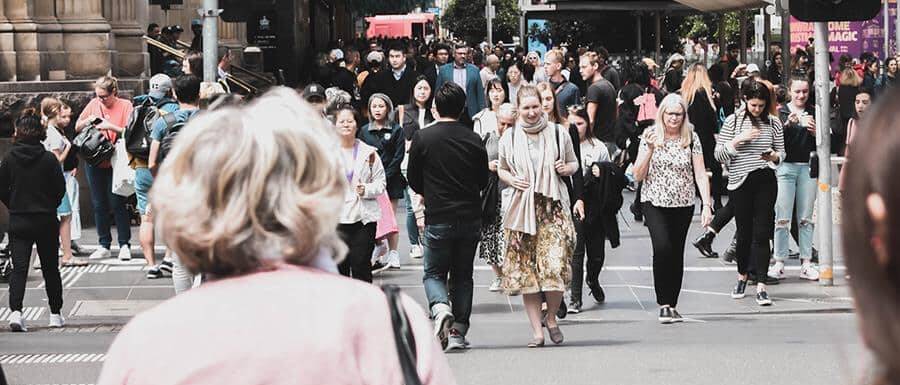
The erosion of public trust
Opinion + AnalysisPolitics + Human Rights
BY Simon Longstaff The Ethics Centre 17 SEP 2021
Christian Porter’s decision to accept an anonymous donation of one million dollars to help cover his personal legal costs has not merely raised questions about his personal judgement.
It has, once again, exposed larger issues about the extent to which some of our government ministers understand the demands of political leadership in a democracy.
To be clear, I do not see anything wrong, in general, with a person accepting financial support to cover the costs of litigation. Nor is there anything problematic about offering such support. There is not even a problem, in general, with such support being anonymous. So, if Mr. Porter were just an ‘ordinary citizen’, there would be little to discuss.
The controversy is solely related to the fact that Mr. Porter is a Member of Parliament and was a cabinet minister in the Federal Government led by Prime Minister Scott Morrison – a position that Porter freely chose to accept, presumably with knowledge of all that it requires. The fact that Mr. Porter resigned from the Ministry allays one source of concern. However, the issues at the heart of this controversy extend well beyond the treasury benches to encompass all serving MPs.
In fact, Mr. Porter’s case raises important issues of principle; namely, whether or not politicians (of all political persuasions) should be allowed, in our democracy, to receive substantial amounts of money by way of anonymous donations. In this, the acid test is not what is convenient (or not) for politicians and their supporters. Rather, the only consideration should be in relation to what supports, or undermines, the quality of our democracy.
Now, it could turn out to be the case that Mr. Porter has not broken any formal rules. Whether or not this is the case will be determined in due course. Yet, to think that this is simply a matter of compliance is, I believe, to miss the point. We are living through a time when the exemplary power of leadership is a potent force for both good and ill. And some of our politicians just don’t seem to understand this!
Ideally, I would prefer to cite examples from across the political spectrum. I am sure that they exist. Unfortunately, the spotlight tends to fall on those in power. So, when a government minister doles out public funds for a private political purpose it has a chilling effect on public trust in those who govern, even if what was done is technically within the rules. Then we have the case of Christian Porter – which, as noted above, seems to offer evidence of either ignorance of, or indifference to, basic standards of good governance.
We might all genuinely sympathise with the desire of a dad to be with his children on Father’s Day. However, when the Prime Minister takes advantage of an opportunity not available to hundreds and thousands of their fellow-citizens, it leaves the impression that there is one rule for the powerful and another for the rest of us.
As noted above, the issue I am concerned about does not concern compliance with the rules. It’s not that such questions are unimportant. It’s just not the focus of this article. Rather, I am worried about the effects of a continuing erosion of trust in our government. Some people might think this to be a trivial matter. Perhaps it is when nothing much is at stake. However, those are not the times in which we are living.
The COVID19 pandemic has been the most significant threat to Australia in the past 50 years. Furthermore, the response to that threat has largely lain in the hands of the community as a whole. Governments can lead, they can put in place policies and procedures, they can supply critical resources like vaccines and safe quarantine facilities. Yet, none of that will be to good effect unless ordinary Australians accept the costs of lockdowns, wear masks, remain socially distant, be vaccinated, etc. This requires the public to look beyond self-interest. The community as a whole has to have a concern for the general welfare of society. Most importantly, we need to be able to trust the judgement and advice of those who govern.
At least in part, this depends on us believing that our political leaders are in this with us; that we are ‘all in the same boat’.
Also, we need to believe that our politicians will act solely in the public interest and that if, for some reason, they do not, then they will be held to account with at least the same degree of rigour that applies to the rest of us.
Leaders should not wait until a time of crisis to demonstrate their integrity. Every decision – including those that do not ‘seem to matter’ – builds (or undermines) the ethical capital upon which politicians must draw at times such as these. That is, the character of political leadership is established in fine detail over time. Mere compliance with the rules is the bare minimum – nothing more. The real ‘weight’ lies in countless acts of discretion not merely in terms of substance but equally in terms of their symbolic significance.
We should all realise that this imposes an extraordinary burden on our politicians. Their public service requires more of them than we demand of ourselves. However sympathetic we might be to their plight, that is the price that must be paid by those who choose to govern. Alas, this is the lesson that a number of our political leaders seem not to have learned.
Ethics in your inbox.
Get the latest inspiration, intelligence, events & more.
By signing up you agree to our privacy policy
You might be interested in…
Opinion + Analysis
Politics + Human Rights, Relationships
Why we should be teaching our kids to protest
Opinion + Analysis
Politics + Human Rights
The Australian debate about asylum seekers and refugees
Explainer
Business + Leadership, Politics + Human Rights, Relationships
Ethics Explainer: Power
Opinion + Analysis
Politics + Human Rights
Time for Morrison’s ‘quiet Australians’ to roar
BY Simon Longstaff
Simon Longstaff began his working life on Groote Eylandt in the Northern Territory of Australia. He is proud of his kinship ties to the Anindilyakwa people. After a period studying law in Sydney and teaching in Tasmania, he pursued postgraduate studies as a Member of Magdalene College, Cambridge. In 1991, Simon commenced his work as the first Executive Director of The Ethics Centre. In 2013, he was made an officer of the Order of Australia (AO) for “distinguished service to the community through the promotion of ethical standards in governance and business, to improving corporate responsibility, and to philosophy.” Simon is an Adjunct Professor of the Australian Graduate School of Management at UNSW, a Fellow of CPA Australia, the Royal Society of NSW and the Australian Risk Policy Institute.
BY The Ethics Centre
The Ethics Centre is a not-for-profit organisation developing innovative programs, services and experiences, designed to bring ethics to the centre of professional and personal life.
The rights of children

The rights of children
Opinion + AnalysisPolitics + Human Rights
BY Camilla Nelson and Catherine Lumby The Ethics Centre 16 SEP 2021
Camilla Nelson and Catherine Lumby’s new book Broken is a “devastating account of how Australia’s family courts fail children, families and victims of domestic abuse”. In light of Parliament’s recent decision to merge the Family Court and Federal Circuit Court, they wrote about the legal and ethical imbalance in recognising children’s rights.
“Alex” was 15 years old when her parents went to court. By then, her childhood memories included a recollection of her father “holding a knife to [her mother’s] throat”, and a series of violent altercations that resulted in her mother being taken to hospital with her face “swollen, bleeding and bruised”.
In court, the judge accepted that Alex was thoughtful, articulate and mature beyond her years. He acknowledged that Alex’s “post-traumatic stress symptoms” – including “anxiety”, “panic attacks” and “hypervigilance” – became “elevated” whenever her father was near. He even stated he was “satisfied” that Alex’s wish to have no contact with her father was “genuine”. But the court still forced Alex into child-inclusive mediation with her father followed by a defended trial – because her father wanted it; and the law apparently required it.
Although in Alex’s case, the judge eventually decided that forcing Alex into a relationship with an alleged perpetrator of harm was not in Alex’s “best interest”, this case illustrates the extraordinary asymmetry in a law that states “children have the right to know and be cared for by both their parents” but does not allow mature children – like Alex – the right to rationally and reasonably refuse this relationship when a parent is abusive and violent.
A glaring contradiction
Alex’s case – and others like it – draws attention to the glaring contradiction at the centre of family law that leads to poor decision-making and dangerously spiralling litigation. These are the so called “primary considerations” in the child’s best interest factors set out in Part VII of the Family Law Act – which, at worst, pits the child’s safety against their parents’ desires, or, at best, assumes a child’s interests will be identical with that of their parents, when this is simply not the case.
Perhaps because family law constructs itself as a contest between separating parents, it lags behind other legal jurisdictions in the recognition it gives to children’s rights. In legal matters outside the family courts, parental authority is broadly understood to diminish as a child’s capacity to make decisions for themselves develops. This is most obviously recognised in the right of a mature child to access medical treatment, regardless of their parents’ views. More starkly, the age of criminal liability in Australia is ten – far too young, according to experts and advocates – and the age of criminal responsibility is 14. In this context, it seems wildly incongruous for the family courts to conclude that a mature minor – such as Alex – is incapable of making age-appropriate decisions about where they will live and who they will see.
When Gough Whitlam and Lionel Murphy drew up the Family Law Act – this was not the case. Back in the 1970s mature minors like Alex were given more – not less – rights under Australian Family Law. In the Act as it was drafted in 1975, section 64(1)(b) stated: “where the child has attained the age of 14 years, the court shall not make an order under this Part contrary to the wishes of the child unless the court is satisfied that, by reason of special circumstances, it is necessary to do so”. Until 1983, children over 14 were all but entitled to make their own decisions under the law.
Even after the rights of adolescents were curtailed by an increasingly conservative parliament and judiciary, legal professionals were still inclined to allow teenagers to “vote with their feet” – as family lawyer’s like to phrase it – when it came to making age-appropriate decisions about their lives, unless, of course, their preferences exposed them to serious harm. Then in 2006, “children’s wishes” – renamed “views” – were dropped down the list of things judges needed to consider when making decisions about a child’s life and placed in the “additional considerations” category, where they have remained ever since. Since then, the government has rejected the recommendations of the Australian Law Reform Commission to rewrite Part VII of the Family Law Act to better recognise children’s rights. In the recent Joint Select Inquiry into Australia’s Family Law System children were not even named among the “Parties to Proceedings” that the Joint Select Committee thought appropriate to consult.
Understanding how and why children are silenced, disbelieved or ignored in society matters when considering the decisions of the family court. Cultural attitudes to children profoundly shape the way they are understood by and in the justice system. The belief that judges stand outside society and politics – or, indeed, “above” it – is a fiction. In the family courts, the opposite is true. Over the course of the last half century, the family courts have functioned as a primary forum for a series of highly charged political debates about the institution of the family, and the role that children, women and men play in maintaining or disrupting it. In recent years, debate has been driven by a minority of men’s right’s activists intent on placing their own “rights” and interests above children’s concerns – oblivious to the fact that parenting is not a “right” but a moral responsibility.
Wrong questions
What the family law lacks is a positive ethical framework with which to think about the rights of children. Instead, the ethical norms associated with family law flow from paternalistic ideas about the “vulnerable child”, with “inadequate cognitions” and “erroneous opinions about the world”. In the name of the child’s “best interests” the law steps in to negotiate the competing claims of parents. This occurs in forums in which children’s voices are largely absent, in which children are not permitted to participate, or – if permitted – are not adequately supported to do so. This is not to argue that children who are subject to family law proceedings are not vulnerable, or do not need care and protection – clearly, they do. It is simply to point out that in the absence of a positive ethics or a robust conception of children’s rights, the child’s “best interest” principle merely operates as a proxy for the interests of others, while the ethical norms of “protection” function to conceal the real power relationships that are at stake.
Essentially, the law asks the wrong questions of the separating family. Parenting does not revolve around questions of what is notionally “fair” or “equal” or “neutral” or “impartial” – the sorts of abstract and allegedly androcentric systems of rational analysis in which judges are trained and which have historically underpinned everything from criminal to corporate and property law, and which are echoed in men’s rights activists’ angry demands for their 50 per cent “shares” in a child. Instead, the question that ought to be asked is how can society best meet this particular child’s needs. What a child needs first is recognition – and once children become fully visible in the law, then their other needs will quickly become clear, such as safety, flexibility, a chance to grow, and at least one place filled with nurture and love that is called home.
Ethics in your inbox.
Get the latest inspiration, intelligence, events & more.
By signing up you agree to our privacy policy
You might be interested in…
Opinion + Analysis
Politics + Human Rights
He said, she said: Investigating the Christian Porter Case
Opinion + Analysis
Business + Leadership, Politics + Human Rights
A foot in the door: The ethics of internships
Opinion + Analysis
Business + Leadership, Politics + Human Rights, Science + Technology
Not too late: regaining control of your data
Opinion + Analysis
Politics + Human Rights, Society + Culture















